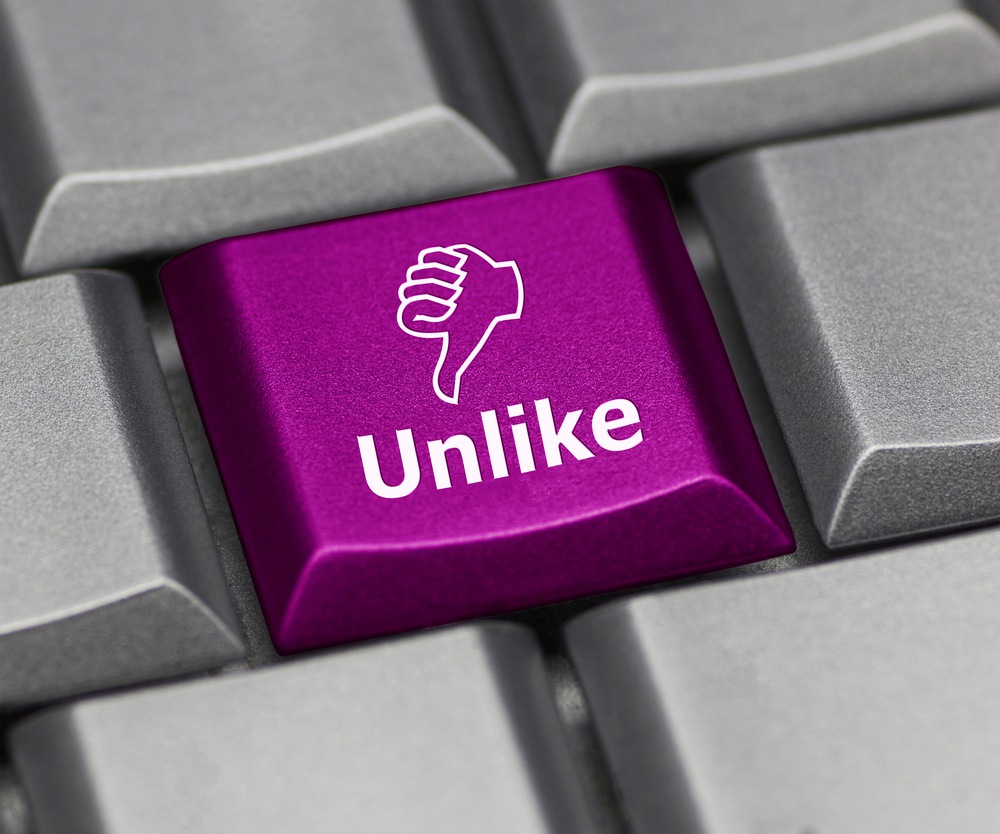There’s no denying that social media is a powerful resource for brands. With 74% of online adults on social media, it’s an effective way to reach and interact with your audience and share information about your brand.
However, social media can also do harm to your business if you don’t understand how to properly manage your social media channels. Check out the examples below to learn more about the pitfalls many business owners run into.
 Image Source: Hobvias Sudoneighm/Flickr
Image Source: Hobvias Sudoneighm/FlickrSpam Sandwich
Those new to the concept of social media often get a rude awakening once they get started. Most business owners are used to traditional advertising methods, and they tend to jump into social media thinking they can use tools like Twitter and Facebook to shout messages at their audience. The notion of inbound marketing, or push vs. pull marketing, is still new to them and they usually learn the hard way that spamming users can make them look bad.
The value in using social media as a marketing and advertising channel relies on the trust and rapport you build through interactions with your potential customers. Using these tools to only send advertising messages to your customers is a turn off. It says a lot about your business when a visitor lands on your website and social media accounts to only see blog posts, status updates, or tweets strictly touting your products and features.
As the co-founder of Buddy Media, Michael Lazerow, told Matthew Bishop on LinkedIn that the goal for marketers on social media is to engage them by discovering “how do you as a brand get into the conversation.” In other words, you need to create content that your audience wants to share and discuss.
Customer Complaints
In years past, it was possible for a business to still thrive despite having a rude owner or poor customer service. The Internet has absolutely changed that game because of the power consumers have to talk about their experiences with a business via online review sites like Yelp and TripAdvisor. Remember, one bad experience shared on a review site could potentially be seen by hundreds, if not thousands, of people.
The same can be said about social media platforms like Facebook and Twitter.
Remember the whole Amy’s Baking Company fiasco? Instead of addressing consumer complaints and finding out why there were negative reviews, the owners went ballistic. In fact, the debacle has become a classic example of what not to do on social media.
While some would argue that getting your name mentioned is better than being ignored, that’s not an excuse to make it a habit. Customers are likely to forget about a hiccup here or there, but with so much competition in e-commerce, it’s not difficult for customers to turn to brands with better customer service.
And, it’s just not the handling of customer service that is important. It’s how promptly you respond to customers as well. Convince and Convert have found that 42% customers who have a complaint on social media expect a response within 60 minutes. Whether that’s realistic or not isn’t the issue; it’s the fact that customers demand a speedy response.
In short, if you aren’t equipped to handle the questions or concerns from customers, then social media can be a dangerous game to play. Always make sure that you’re helping (and not attacking) customers and that you respond in a timely manner.
Drunk Dialing
The combination of communication and one too many Friday night cocktails can turn a social media presence into an embarrassing situation for the wrong business owner. I’m sure in the ages of physical mail and telephone cold-calls there were minimal opportunities to drunk dial a customer. That’s not always the case nowadays.
With access to mobile devices 24 hours a day, 7 days a week, it’s extremely easy to forget when to leave business at the office and not bring it into our social lives. It’s far too easy to let out a few drunk tweets or Facebook statuses while you’re sitting at your favorite watering hole or office party – it even happened with the Red Cross in 2011 and backfired when JCPenney sent out seemingly drunk texts during the Super Bowl.
Sending out a drunk tweet or Facebook status isn’t that uncommon, but it can be damaging for a brand if it becomes a common occurrence. Resist temptation and make sure that you leave your brand’s social media accounts in the hands of responsible team members who won’t make any bad decisions with these technology assets.
Too Much Exposure?
Not only does that phone in your pocket have the ability to ruin your business’ reputation while you’re finishing up your last beer, there also happens to be a camera attached to it – which can visually capture you enjoying your night out as well. Over the last few years we have seen important political figures and sports heroes make fools of themselves with racy pictures on social media.
In case you already forgot, Apple recently ran into a PR issue when it was discovered hundreds of nude celebrity photos were leaked online after someone had hijacked the cloud. Imagine the horror if those pictures had been of well-respected CEOs or faces of a major company or brand. There would be some serious explaining to do.
Unlike a celebrity or well-known CEO, a small business owner doesn’t have the resources to handle such a nightmare. Think of the backlash a local shop owner would face if they sent out inappropriate images.
If for some reason you do snap racy pictures – which is not recommended – keep the pictures to yourself! Furthermore, make sure that you only share content that is PG. Not only do you want to avoid the embarrassment, you don’t want to lose your integrity and customers down the road. Both American Apparel and VietJet have recently dealt with the repercussions of sharing lewd photos on their social media accounts.
Hash Tag Hijack
Who doesn’t love a good hashtag hijack gone awry? If you’re unfamiliar with the practice, it is when companies latch onto trending hashtags on Twitter and Instagram and then see how they can attach marketing messages to that hashtag – often without researching the meaning of the hashtag. It’s actually a great way to get the attention of people while staying up to date with buzzing topics and current events – when done correctly. Oreo perfected this tactic during the blackout at Super Bowl XLVII.
If you perform your due diligence and really understand why a hashtag is trending it’s pretty easy to prevent an embarrassing situation. However, if you don’t understand the meaning behind a trending hashtag, you could face some much-deserved backlash. For example, DiGiorno recently used #WhyIStayed, which was a trending hashtag regarding domestic violence. In DiGiorno’s attempt to stay socially relevant they used an extremely sensitive hashtag to sell frozen pizza. Can you say epic fail?
Always remember to read other tweets so you can understand the origin of a hashtag before you attach it to any marketing or branding messages.
Conclusion
Social media is one of the best ways to spread brand awareness and engage with your audience. However, it can also be detrimental if you treat your brand’s account like that of a college student. Always be professional and avoid scenarios that include anything that is sensitive to your customers.
Featured Image: jurgenfr via Shutterstock




